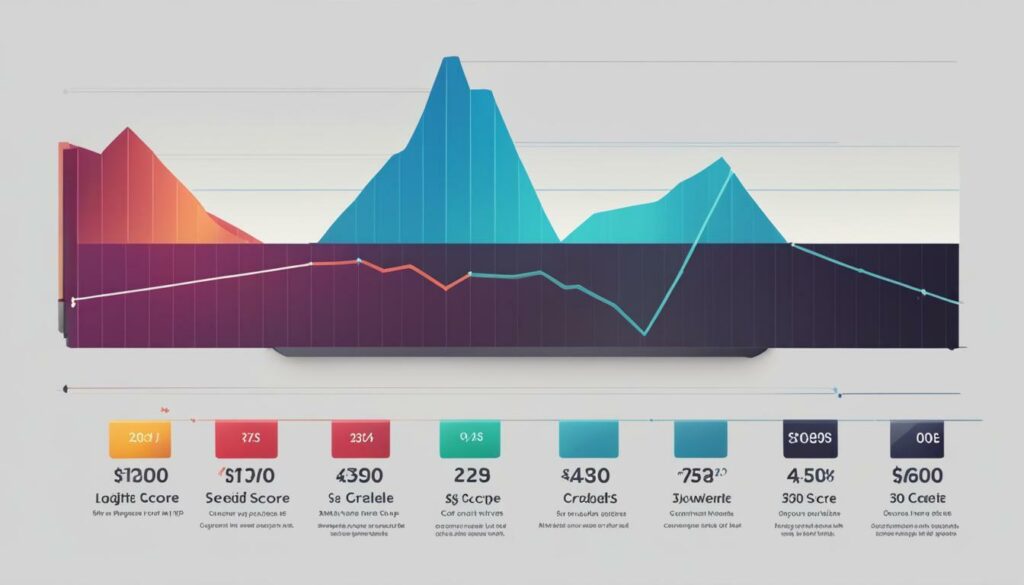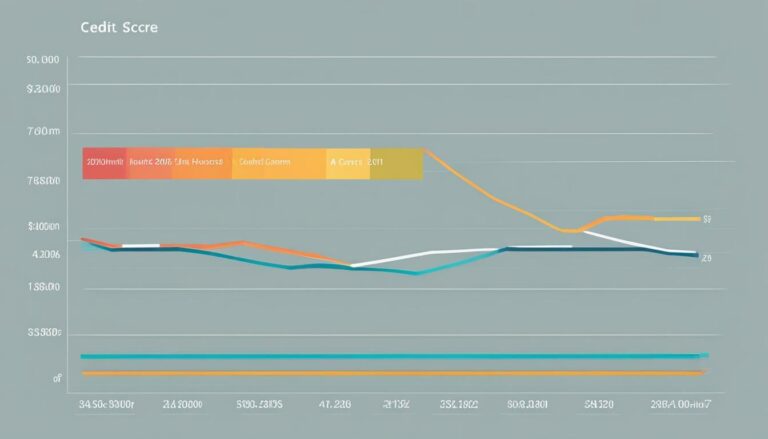Understanding Credit Scoring and the Housing Market

In the US housing market, credit scoring plays a crucial role in determining your eligibility for a mortgage and affects various aspects of the homebuying process.
When it comes to buying a house, understanding credit scoring is crucial. Your credit scores and financial situation have a significant impact on your ability to purchase a home. Before starting the homebuying process, it’s essential to be aware of your income, employment status, debt-to-income ratio, and credit scores.
Lower credit scores may result in higher mortgage interest rates and the requirement to pay for private mortgage insurance (PMI). The amount of mortgage you can afford depends on your income and debt load.
Different financing options, such as conventional mortgages, FHA loans, special program loans, and jumbo loans, have varying credit score requirements. Generally, a credit score of at least 620 is needed for conventional loans, while FHA loans may accept credit scores as low as 500 with a 10% down payment or 580 with a 3.5% down payment.
🚨 TUIC Errors + Low Credit Score?
CreditScoreIQ helps you build credit faster by reporting utility bills to all 3 bureaus—while you dispute errors.
Start Building Credit Today →Key Takeaways:
- Your credit score influences your eligibility for a mortgage and impacts various aspects of the homebuying process.
- Lower credit scores can result in higher mortgage interest rates and the requirement to pay for private mortgage insurance (PMI).
- Your income and debt load determine the amount of mortgage you can afford.
- Different financing options have varying credit score requirements.
- Improving your credit score through on-time payments, low credit card balances, and monitoring credit reports is advised.
The Influence of Credit Scores on Homebuyers
Homebuyers need to understand how their credit scores can affect their ability to secure favorable mortgage terms and housing affordability. Your credit scores and financial situation play a significant role in the homebuying process. Before you start looking for your dream home, it’s essential to be aware of your income, employment status, debt-to-income ratio, and credit scores.
Lower credit scores may result in higher mortgage interest rates and the requirement to pay for private mortgage insurance (PMI). The amount of mortgage you can afford depends on your income and debt load. It’s important to consider your debt-to-income ratio when determining the size of the mortgage you can comfortably handle.
Different financing options are available for homebuyers, each with its own credit score requirements. Conventional mortgages typically require a credit score of at least 620, while FHA loans may accept credit scores as low as 500 with a 10% down payment or 580 with a 3.5% down payment. Special program loans and jumbo loans also have varying credit score requirements.
Credit scores can also impact the interest rates and costs associated with the loan. A low credit score may result in a higher interest rate, making homeownership more expensive in the long run. That’s why it’s crucial to improve your credit score before applying for a mortgage. Make sure to make payments on time, maintain low credit card balances, and monitor your credit reports for accuracy. By doing so, you can increase your chances of securing a favorable mortgage with lower interest rates, ultimately reducing your overall homeownership costs.

| Financing Option | Credit Score Requirement |
|---|---|
| Conventional Mortgages | At least 620 |
| FHA Loans | As low as 500 with a 10% down payment or 580 with a 3.5% down payment |
| Special Program Loans | Varying credit score requirements |
| Jumbo Loans | Varying credit score requirements |
Understanding the impact of credit scores on homebuying is crucial for ensuring you make informed financial decisions. By being proactive about improving your credit scores, you can enhance your chances of securing a mortgage with favorable terms and enjoy the benefits of homeownership.
Improving Credit Scores for Homeownership
To increase the chances of qualifying for a mortgage with favorable terms, it is important to take steps to improve your credit rating. Your credit score plays a significant role in determining the interest rates and costs associated with your mortgage, making it crucial to have a strong credit history.
One of the first things you can do to improve your credit rating is to make payments on time. Late payments can have a negative impact on your credit score, so it’s essential to pay your bills on or before their due dates. Setting up automatic payments or reminders can help you stay on top of your financial obligations.
Maintaining low credit card balances is another key factor in improving your credit. High credit card balances can increase your credit utilization ratio, which is the amount of credit you use compared to your total credit limit. It’s generally recommended to keep your credit utilization ratio below 30% to demonstrate responsible credit management.
In addition to making timely payments and managing your credit card balances, it’s crucial to monitor your credit reports for accuracy. Errors or discrepancies on your credit reports can negatively impact your credit score. By regularly reviewing your credit reports from the three major credit bureaus (Experian, TransUnion, and Equifax), you can identify and dispute any inaccuracies to ensure your credit rating reflects your true financial standing.
FAQ
Q: How does your credit score affect your ability to buy a house?
A: Your credit score plays a significant role in the homebuying process. It affects your ability to qualify for a mortgage, the interest rates you receive, and your overall homeownership costs. A low credit score may result in higher mortgage interest rates and the requirement to pay for private mortgage insurance (PMI).
Q: What factors should I consider when determining the amount of mortgage I can afford?
A: When determining the amount of mortgage you can afford, it’s crucial to consider your income and debt load. Lenders typically look at your debt-to-income ratio to assess your ability to repay the loan. It’s important to have a clear understanding of your income, expenses, and debt obligations before starting the homebuying process.
Q: What are the credit score requirements for different financing options?
A: The credit score requirements for different financing options vary. Conventional mortgages generally require a credit score of at least 620. However, FHA loans may accept credit scores as low as 500 with a 10% down payment or 580 with a 3.5% down payment. Special program loans and jumbo loans may have different credit score requirements. It’s essential to research and understand the specific requirements of each financing option.
Q: How can I improve my credit score before applying for a mortgage?
A: To improve your credit score before applying for a mortgage, it’s important to make payments on time, maintain low credit card balances, and monitor your credit reports for accuracy. Paying off debts, limiting new credit applications, and avoiding late payments can also help improve your credit rating over time.
Q: What are the implications of a low credit score on homeownership costs?
A: A low credit score may result in a higher interest rate, making homeownership more expensive. Higher interest rates can lead to increased monthly mortgage payments and overall homeownership costs. Improving your credit score can help you secure a more favorable interest rate and reduce your long-term homeownership costs.
Ready to Improve Your Credit?
Disputing TUIC errors is step one. Step two? Boost your score by reporting utility payments with CreditScoreIQ.
Get Started Now (Only $1 Trial) →3-bureau reporting • $1M identity insurance • Dark web monitoring






